THE DIARY OF THE YOUNG REBELS.
HE ENLISTS AT HUNTSVILLE, ALABAMA, JOINS COLONEL E. J. JONES’ REGIMENT – DEPARTS FOR CHATTANOOGA, THENCE FOR DALTON, LYNCHBURG, HARPER’S FERRY – RETREATS FROM HARPER’S FERRY TO WINCHESTER AND MANASSAS GAP, AND IS FINALLY KILLED AT THE BATTLE OF BULL RUN.
April 29. – Left home with a company of volunteers, bid farewell to home, parents and friends, and departed on a twelve months tour, for the defence of my country; hated to leave most awfully, but our country being in danger and on one to defend her did not suit us.
April 30. – Arrived at Chattanooga before daylight, and had to lay over eight hours; never was so bored by a place in my life; was very glad to leave it at two o’clock for Dalton, Georgia; we were boxed up in freight cars to travel over a long railway, through a poor pine country; arrived in Dalton before night, and found other companies there; laid over two days and a half, during which time we organized a regiment, and elected E. J. Jones, of Huntsville, Colonel, and E. M. Law, Lieutenant Colonel; we received our arms at Dalton, smooth bored muskets, at which the boys grunted.
May 3. – Left Dalton for Lynchburg, Virginia, in old box cars, forty-one in a car; travelled over some rich, some poor and some beautiful county; crossed two large rivers; the Tennessee is the most beautiful river at this point that I ever say, and afforded the most beautiful views from the bridge that our country furnishes, About sunset we stopped and packed a quantity of hay from a rick near by to sleep on. Slept all night in the cars, such sleeping as it was.
May 4. – Woke up in Jonesborough, Tennessee, about sunrise; saw lots of beautiful women; received a bouquet from a very nice girl, with a soul stirring inscription fastened to it. Left there for Bristol, in the land of Virginia; arrived about ten o’clock, and was delayed until four; left with and advance guard of our company and several other companies for Lynchburg; slept all night in the rail car.
Sunday, May 5. – Woke up in the early morning eight miles from Lynchburg; took breakfast at Liberty, where, as usual, the ladies turned out to do us honor; reached Lynchburg about ten, and were marched out to our camp, two miles from the depot and on a hill, with two springs at the foot of it. It rained all night, and I and to stand guard from eleven to one.
May 6. – It rained all day; had to stand guard again at night, but missed standing on picket guard for some time by it.
May 7. – Wrote home for the seventh or eighth time, and was mustered into the service of the Confederate states; felt homesick, because I could not hear from home;
May 8. – Drilled half the day.
May 9. – Was excused from drill on account of a felon[1] on my thumb; sent two letters home by Mr. Murphy, of Huntsville.
May 10. – Excused from drill; was glad to see Uncle Washington[2], who is now our Quartermaster; got leave to go to town to-morrow with a pass; intend to look around and see the place; wrote part of a letter to a young friend at home; have never heard from home yet; getting very anxious to hear from home; answered a tattoo; went to bed after; and slept soundly until midnight, when we were aroused by an order to march for Harper’s Ferry at five o’clock, and have to cook rations for two days; we have to foot it eighteen miles, in order to shun Washington; don’t like it a bit; we are all willing to go; expect a fight with the Northerners there; but few of us ever expect to get back; did not get off at five; we were delayed until ten, and probably longer; got mad as thunderation at First Lieutenant for refusing to let us have flour; we have to make our for two days on bread and meat that a dog would refuse; it seems that the whole North has turned against us; but we can whip them; if we get to Harper’s Ferry safely without an encounter with the Yankees we can whip as many of them as they can send against us; Old Abe is the greatest fool that I ever heard of; if he had good sense he would see that the South can not be coerced; we are united as one man, and can whip any lot of Yankees [on equal terms; it is useless for them to wage war on us, for we can defy the world if they invade us; I am very sleepy from being awaked at midnight, and then to be disappointed; I am getting very tired of this camp and suspense; I had rather go on and pelt it right through; we are waiting here very impatiently for orders to leave, and cannot get them; one of the companies will not go without ammunition, and I do not blame them; all of the regiments ought to do the same; we cannot get rifles, and I, for one, am not willing to fight with those old muskets; I had rather have a pair of good pistols; why on earth can’t a fellow hear from home? They seem to have forgotten that we are in the world; I have notion not to write any more until I receive a letter from home; formed a line and marched to the depot; the clouds had been lowering for some time; they now turned loose on us with a vengeance; we however got on board of the cars, or tumbled pell-mell into a lot of stock cars, crowded together like so many hogs, and travelled all night for the third night in the cars, slept on the floor and got cold as thunder; waked up half froze to death, trravelled half the day, and was delayed waiting on another train at a place called Manassas station; one regiment of Virginia troops are stationed here, one company of artillery and one of cavalry; they are got in this place to keep Lincoln’s troops from passing through the direct route to Washington; some dread that he will attempt to take this place; all the Harper’s Ferry machinery is here. I fear that we will do badly so far as eating is concerned; I dispose of the fat meat that they give us, and do not intend to eat it if I can keep from it; we fare rather badly I think, and have an old tyrant for a colonel; he is an aristocrat – dog him.
Sunday, May 12. – Pitched off for Strasburg about four; passed another miserable night in the cars; arrived Strasburg at daybreak.
May 13. – Ate a hasty breakfast, and took up the line of march for Winchester, eighteen miles distant, over a hard turnpike and beneath a pelting sun; people gave us refreshments all along the route; gave us our dinner, and a first rate one; arrived at Winchester about six, in a hard rain; marched through the town in the rain and got wringing wet; just as we got through the depot the rain stopped and we ate supper, crowded aboard the cars, our feet sore, tired, weary and sick at heart; arrived at Harper’s Ferry about two o’clock, completely exhausted, and took up our quarters in a vacated store, very dirty and a foul atmosphere; changed clothing and slept in each others arms until seven o’clock on the 14th; roused up and went out on the Potomac, took a wash and a view of the far famed river; went back to a hotel, ate a tolerable breakfast, and sallied out to see the sights; took a close look at the work done by old “Brown,” and wondered at the old fool as well as at the citizens; he, through cowardice, took a secure but out of the way position, and they, through fear, let him imprison them and hold the town in subjection; saw the bullet holes made un a house by him and his men, and one that went through the corner of a house and killed a man named Beckhammer; passed this day in writing, reading the Testament, and viewing the gun works; they are making guns in a hurry – sixty a day; took up a Yankee spy, as we supposed, but we were mistaken, for he was a good Southern man; a few of our boys went out a fishing, but came back directly, run out of breath, and reported they heard the cannon of the enemy; but they were fooled, for it was the sound of some men who were trying arms.
May 15. – Rested all day; nothing new happened except a change of quarters from a stinking hole to a very nice house; also climbed on Jefferson’s rock, and took a view of the grandest and most sublime scenery in the State; where the great statesman stood and admired it as a large shelving rock supported by pillars, and has a great many names cut in it; left the initials of my brother’s and my name with the others; slept very well all night; woke up feeling a little sick; drilled six hours, which we are to do every day; I am very anxious to hear from home; in fact we both are.
May 17. – Drilled all day, nothing new happened, no letter from home yet; I can’t see why on earth we don’t hear from home; I am sure that the letters are miscarried; very cold mornings, and days not warm by any means; hope I will get a letter to-morrow.
May 18. – The long looked for letter comes at last, and oh! how much joy it gives me; all well at home, and we feared otherwise, and all miss us at home and want to see us, but not worse than we want to see them; we are satisfied now; we moved to our encampment; this eve, on a hill overlooking the Potomac, cut pine tops for our bed, cooked our supper, cooked the beef splendidly for the first; I hope that we will remain here for some time, on account of home; we both cried over the letter, and I know that we will both cry over Pauline’s when we get it, which I hope will be soon; we are better satisfied than we have ever been since we left home.
Sunday, May 19. – What a cold day for the 19th of May; everybody is acting as if it were Monday, all firing guns, cooking, playing cards, &c.; had a dress parade; Colonel Jackson inspected us; he is a large, fat old fellow, looks very much like an old Virginia farmer; returned to camp, prepared and ate a canty dinner; had Episcopal service, and then a good old fashioned service from our paster Chadick[3]; Oh how I loved to listen to him; wrote a letter home; had another dress parade in the evening; rained all night.
May 20. – Still raining a very cold rain; have just finished cleaning up through and around our tent, and we are now waiting very impatiently for our rations, for we are undoubtedly very hungry; I will now finish the last chapter of the Acts, and begin at the Romans, and finish to-day when the day closes; did nothing to-day but look out and read the Testament; received a letter from a friend at Fort Pickens; got some straw to sleep on; slept soundly until daylight.
May 21. – Got up, made the fire and cooked some bread and ate a scanty breakfast of burnt bread and butter; afterwards read several chapters in the Testament; hope to hear from home again to-day; we are both a little homesick; received two letters from sister Pauline, and I was glad, indeed, to get them; drilled six hours under Colonel O. E. Humphreys, who won’t let us rest at all; one of our company died last night at Strasburg, which created no little sorrow in the company.
May 22. – Started to reply to the letters from sister Pauline[*]; had started on the fifth page when I was ordered to the mountain to get wood for the regiment; it is rather hard work, but we rest often enough; I will finish my letters as soon as possible; three trains of troops have just arrived (ten o’clock), but as they are on the opposite side of the river, I can’t find out where they are from; from all indications, I look for hot work soon; troops are coming in every day, and they surely are not coming here just to be coming; everything here has a martial appearance; I guess that we may look for a fight within three weeks, and if I fall, I hope that God will pardon my sins; I want to pray and be saved, but I am too much of a sinner – I fear that I never will; it is horrible to think of dying, leaving a world of sorrow and going straight to a worse – yes, a thousandfold worse. From such a fate, O God, in mercy save me; do, O Lord, deliver me from sin and temptation; I know that I am unworthy, but thou, O God, art merciful. This is real hard work; we have to pitch the wood as far as we can down the mountain, and then climb down to it and pitch it again, and continue thus to the foot of the mountain, where it is loaded into a wagon and hauled to the camp; the streets here stink worse than carrion; I can smell it across the river when the breeze comes from the direction of the town; I have just finished a hearty dinner of cold beef and light bread (the latter several days old0, and I will now take to my Testament until we have to go to work again; finished the day’s work and returned to camp; wrote away on a letter until night; slept soundly all night; woke up at daybreak.
May 23. – Feeling bad and unwell. Stephen[*] is out on picket guard for twenty-four hours; very warm day in the sun, but cool in the shade, and very cool nights; Virginia votes on the ordinance of secession to-day; I expect to hear of great excitement and a good many mobs in the State to-day; received a letter from home to-day, and felt a good deal better on account of it; I wrote at every interval until one o’clock, 24th; slept very well at night, considering I was alone and had a bad cold.
May 24. – Warm but pleasant; drilled four hours until two o’clock; Stephen got in about nine, and he is now engaged in writing home; I wrote three sheets myself; will send it in a short time; drilled all day; heard bad news from the war outside of us; if the reports are true, we are completely surrounded; awoke up at daylight feeling anything but comfortable on account of eating too much supper last night, and partly on account of the bad news; looks very much like rain this morning.
May 25. – Rained very hard for an hour or so; had a general holiday, and took a bath in the Potomac. We are now quartered in the same tent with the Quartermaster of this regiment; very well fixed, but nearly out of money.
Sunday, May 26. – A weary day; drilled two hours and a half; heard a splendid sermon from the text: – “Remember now thy Creator in the days of thy youth,” &c., from W. D. Chadwick, who is now the chaplain of our regiment. Don’t like to drill on Sunday one bit; Stephen is sick; I fear that he will have the measles; we are expecting a fight in a short time; the North has invaded us and we will drive back the ruthless vagabonds.
May 27. – The most pleasant and beautiful morning that the sun ever rose on, or about as pleasant. It commenced raining about eight o’clock; the wind commenced blowing, and scattered the tents far and wide, causing great merriment in the company; turned cold towards twelve, and disappointed me as to a contemplated bath; rather a cold night; Stephen still complaining; slept on uncle’s cot, and slept finely until morning.
May 28. – Woke up and found the weather had moderated; gave our bed up to a lady from Huntsville; I drilled all day’ Stephen still sick and growing worse; I suppose that he has got the measles at last; I have just wrapped him up with blankets warm, for a good night’s sleep, while I wait for roll call; I am now going to prepare for old “Venable” to sleep in here; slept well all night.
May 29. – I woke up and found it raining; Stephen has fever; cold day; drilled on hour, and am now waiting for my breakfast; Stephen took the measles to-day; I moved him to a private house and stayed with him at night; ate my supper with Mrs. Jordan; I intend to eat there all the time that she stays, if possible. Two companies of Virginians ordered off this evening for a fight somewhere.
May 30. – Stephen broke out with the measles, thick as hops; wants to see home; still eating with Mrs. Jordan, and, I suppose, permanently, though D. C. Humphreys objects, on account of the measles; received two letters from home, with good enough news in them; very warm day; Uncle Wash is very kind, and everyone else is kind to us.
May 31. – Sent four letters home, per J. J. Venable; Stephen is recovering, but I fear, through imprudence, will get worse as he recovers; I drilled until twelve o’clock, and was seized with a severe pain in my right chest – strong symptoms of pneumonia. If I take that, I have no other idea but it will end my life; I was cupped for it, and rubbed my side with turpentine; I hope to be well and hearty by Monday next; this is the last day of May, 1861, and a beautiful day; we are one thousand miles from home; one of us (Stephen) laid up with measles, and as fretful as a sore-headed kitten; I am afraid of pneumonia; truly we are in an unenviable situation; we often think of home, and our hearts yearn to be with them, but our country and duty says not – the latter we will cheerfully obey. I would like to see the home folks about now; I am confident that peace will be made in a few short weeks, maybe months, and we will then return to repose our weary and careworn bodies at a loved home; I hope so, and pray God that it may be so.
June 1. – A beautiful day; the scouts brought intelligence that the enemy was near at hand, only fifteen miles off; Stephen is more pettish than a sore-headed kitten; grumbles more that a sore-headed bull; does nothing but grumble and quarrel, and curse the measles; I am a good deal better, and ready for a fight; sent Stephen off to Winchester, in anticipation of a fight; I fear that it will make him worse; it rained soon after he started, but I suppose that he was on the cars; took tea with Mr. Geo. Crowles, and had a splendid supper; slept very well, but took cold; I guess I will have to stand picket to-day.
Sunday, June 2. – Missed the parade; took a bath; heard a sermon from the xiv. Psalm, 1st and 2d verses. Very warm day; cloudy and threatening; towards night commenced raining; about dark procured a room and bed for three of us.
June 3. – All right excepting a night sweat and a wet shirt; a very pleasant morning; stood picket guard twenty-four hours, from eight o’clock Monday; rained part of the time; slept on the ground during the day and part of the night; slept about one hour in the old “Brown” house.
June 4. – Commenced raining early, and rained all day; received a letter from Jno. Edwards, and wrote one to him and one to sis; slept in a bed last night finely; waked up in the 5th with a rheumatism in my shoulders, and found it cold and raining; answered to reveille, read the last twelve chapters of Luke, and am now waiting for my breakfast; it was a very disagreeable day indeed, cold rain all day. Received a letter from Pauline, a good one, too; slept in a house near the camp.
June 6. – We waked up and found it still cold, wet and misty; drilled half of the day; turned warm; had a big dance in camp.
June 7. – Warm and cloudy; drilled up to twelve o’clock, and am at present engaged in getting dinner; was severely reprimanded by the Captain[4] for an act that I was innocent of; I was mad enough to have killed him for it; drilled regularly until night.
June 8. – Woke up with a sick headache, and was excused from drill; went in a washing; put on clean clothes and felt all right; Stephen returned to day well and hearty; was glad to see him; received orders to strike tents and be ready to march in a short time, as a fight was on hand, which was obeyed with alacrity, as every man seemed anxious for a fight and reported ready; in fifteen minutes a heavy rain came upon us, and the order was countermanded, to the great indignation of all.
Sunday June 9. – Moved one and a half miles into an old wheatfield, in a very rough, rocky place, and pitched tent; missed preaching to-day.
June 10. – Laid up with the diarrhea; very hot; I would as lief fight as not. This morning would like to hear from home; wrote a letter home.
June 11. – Very warm; drilled two and a half hours before noon; sent off extra baggage to Winchester preparatory to a march, fight or something else; drilled and sweated like thunder.
June 12. – Very pleasant morning; pleasant breeze stirring. I have to stand guard to-day and night; very well pleased; expecting a battle daily, whether here or elsewhere I know not, but we will have a fight certainly, and that shortly.
June 13. – Started to write home; was stopped by an order to strike tents; did so, and sent this off with the expectation of marching right away; had to stay in our old encampment, beneath the deep blue vault of heaven; rather cold.
June 14. – We are going to evacuate this place, and leave for Winchester, on foot; blowed up the bridges; and burned up the public property; going to leave for a place where we can get a fight.
June 15. – Finished the work of destruction, and left about ten o’clock; marched thirteen miles over a very hard and dusty road, and through a very fertile country; the best and most wheat that I ever say, and clover in abundance; camped in a wood three and a half miles from Charlestown; cooked and ate; slept on the ground, with no protection from the weather; the ladies of Charlestown treated us very well, and hurrahed for old Jeff.
Sunday, June 16. – Expected a rest to-day, but disappointed, as usual; had to march thirteen miles in quest of the enemy, through a beautiful and fertile valley; camped on each side of a small creek; not near so warm as the night before.
June 17. – We roused up before day, and got ready to march; heard of the Yankees moving South; took a counter march to intercept them in their march on Winchester; they burned Martinsburg to-day, if rumor is true; marched eight and a half miles over a hard turnpike, and camped three and a half miles from Winchester in a wood, which reminds me of a woodman’s home – very much like it; expect to fight in a few days; in fact we expected it this morning; was sure of a fight; extra cartridges were served out, all the wagons started back, and our captain made a speech to encourage us; very cool weather; came near freezing last night; cool but pleasant this morning.
June 18. – Waiting orders; may stay here two or three days; received three letters from home; responded to them; the boys caught five or six squirrels and two hares; sleep on the ground finely.
June 19. – Received a box of cake and a pistol from home, with more letters; glad to get them at any time; beautiful morning; warm day, cool night; it looks like rain this morning; we expect to move to-day nearer Winchester; glad of it; I would like to see some of the ladies of Winchester the best kind.
June 20. – Moved our camp within a mile of Winchester, and got our tents; have got them pitched and prepared for comfortable soldier living. Received another letter from home; all well. Not much idea of a fight for a while.
June 21. – Very pleasant day; feel sick; excused from drill, and taking a general rest. Wrote home and to several acquaintances. A funeral sermon is being preached in sight of the camp; one of the soldiers died yesterday – a member of the light infantry. The ladies will be out here this evening to see us. I intend to try and fix up a little. Expect to remain here until July, when we know what we have to do.
June 22. – Drilled half of the day; went to town and bought some clothing; Dined at the Taylor Hotel; very common fare. Rested in the evening. Received orders about ten o’clock to cook provisions and prepare for marching.
Sunday June 23. – Beautiful morning; rather cool. Waiting orders to march on the Yankees; did not march. Heard two sermons from the Rev. W. D. Chadick; very good ones. H. C. Worthun starts for home tomorrow; he has the consumption. I have a few letters to send by him. Don’t I wish that I could go for a few days, to eat watermellons, apples, peaches, &c.? It would be glorious! Rained in the night; turned cool.
June 24. – Cool and clear. A beautiful morning; no prospect of leaving here yet. I think we will stay one or two weeks longer. It is only ten days until Congress meets, and that decides what we will have to do. Stood guard from eight to eight.
June 25. – Went to town and took a bath; came back at twelve, and slept until late, then proceeded to write a letter to Matt, and one to Pauline. Stephen is on Guard to-day, and comes off at one o’clock to-morrow.
June 26. – Pleasant, but cloudy morning. Evening, moved our camp to one of the hottest places in the country. Took a very severe cold and violent headache; sick as a horse. It rained, as usual, about the time some of us got our tents struck.
June 27. – Wake up feeling very badly; warm and sultry. Went up to the —- camp, and found several old acquaintances; head aches awfully; still a very bad cold. Strange we don’t get any letters; there is certainly a flaw in the postal arrangements. Received a letter from Pauline. Felt sick all day; slept soundly all night.
June 28. – Wake up in the morning feeling considerably better. Went out on drill, and returned feeling worse. Felt very sick; would as soon go home with C. W. as not. Very hot day; a little breeze stirring. Moved our camp to a beautiful grove, and had a very nice encampment; hope we will stay here as long as possible, at least until we can take an active part in the war movements.
June 29. – Just two months since we left home; hope to be there before two months more; very sick with the asthma, and have a bad cough yet.
Sunday, June 30. – Nothing new.
July 1. – Very cool; rained in the morning and at night.
July 2. – Really cold; received orders to march in a hurry, for the fight was now close at hand; marched all the evening at a quick step; met some prisoners on the route – sad looking cases, 45 in number; stopped a little after dark, and slept until half-past one o’clock; was roused up and ordered to march, which was not very cheerfully obeyed, owing to sleepiness; Colonel Howlett and Doctor Patton, of Huntsville, came in the morning before we started, bringing our letters; when the order was received, Col. H. seized a gun and marched with us; Dr. P. procured a horse and was along as surgeon.
July 3. – We marched all night until daylight, and stopped to get breakfast; we are now in the woods, seven miles from Manassas, the reported headquarters of the army; large reinforcements have come up, and we expect to give them a good fight; in fact we will be sure to whip them; I think, I hope so; would like to send some letters home, if possible. I was very glad to hear from home by one who had seen the folks, and glad that they are all well. A man, one of our regiment, was shot and will die, by the careless handling of a pistol; we left, as we thought, for Manassas Junction, about twelve o’clock, Colonel H. in the ranks as a private, and marched about three miles; filed to the left and stopped behind a stone wall and rested in the wood all day; was roused up in the night, and moved about three hundred yards, to another stone wall, and slept until day, expecting a fight all the time, but the enemy seemed inclined to stay where he is, and so do we.
July 4. – The memorable day of all days for the American people; we could hear the sound of the enemy’s guns, I suppose in celebration of the day; we did not celebrate it; slept a good part of the day; would like to know how the home folks spent it; I would like to know what we are going to do; we slept about in the woods all day, and went to sleep at night expecting to be roused for a battle before morning; was aroused about three o’clock, and expected a fight right away, but never moved out of the camp; we will probably fight to-day, July 5, as old P.[5] seems anxious to fight us; lay secreted in the woods all day; nothing new, went on guard at 7 o’clock P. M.; stood four hours during the night; rained this morning, and looks as though it would rain hard before night; would like to see Old Abe’s message[6]; do not know when we will fight; can hear very little from which to draw an opinion; news came that the enemy was advancing; we were again drawn up in battle array, and waited impatiently two hours, but nary [?], Mick Davis, Clint Davis and Mr. Erskine came in from Huntsville, and took their places in our ranks as privates, also Col. Hewlett and Capt. Beard; we had ninety men ready and willing for a fight; I am beginning to believe that we will not have any, I have been fooled so often.
Sunday, July 7. – We were ordered to fall back to our old position near Winchester; some of the men thought it was a retreat, and began to grumble; the General ordered a note to be read to his command, in explanation of his conduct; we started in an awful hot day; I fell out of the ranks, went off the road some distance, and got a splendid dinner from an old lady and two young ones – splendid milk, butter, and bread, and I did ample justice to it; she upbraided us for leaving her to the mercy of the Yankees; I straggled into camp about sunset, completely exhausted, and went off to bed without supper.
July 8. – A beautiful morning; rested all day, with the exception of dress parade; wrote part of a letter home.
July 9. – Spent the morning writing and drilling; it rained in the evening, affording ample time for writing, and a great deal of it was done.
July 10. – Received a letter from home, all well; have struck our tents, and are lying around here waiting for orders; don’t know what it means; a huge columnbiad came up a few moments since to be planted upon this hill; that looks as if we are going to fight here; the militia and prisoners are engaged in throwing up breastworks and planting cannon for the defence of this place; the Yankees are advancing and seem determined at least to make an effort to drive us out from here, but I think they will fail; they outnumber us, but can’t outfight us; received orders to strike tents this evening, which we did, but a rain coming up, we pitched them again for shelter; expected all day for the enemy to advance on us.
July 11. – Struck tents again this morning at daylight, I suppose to deceive the enemy as to our force, &c.; drilled two and a half hours on battalion drill.
July 12. – Frilled four hours; received a letter from home; rained in the evening, and very hard all night.
July 13. – Cleared off finely, and a beautiful morning; very cool weather for July; went to town in the forenoon and made the ice cream and cakes fly; several citizens of Huntsville arrived and brought us our letters; slept very cool in the night.
Sunday, July 14. – Ready twenty psalms; helped draw provisions; cleaned my pistol, loaded it and looked over a newspaper; have now just completed writing a letter for home; I wonder why “Chadick” did not preach.
July 15. – Cool and clear – had a brigade drill in the morning; went through some of the evolutions badly; our regiment was sharply reproved by the Colonel; received orders to cook up all provisions on our return from drill; have nothing to cook; report says that the Yankees are coming on us; I do not believe it; I think that we will have to march on them if we want to fight them.
July 16. – Had another brigade drill; went through it better; Colonel Stewart’s[7] cavalry went to sleep, and suffered themselves to be surrounded, and came galloping in without hats, saddles, pistols, guns, &c., raised the alarm and had us drawn up in battle array to wait the enemy; we slept on our arms all night.
July 17. – Warm but pleasant; we are lying around our guns, looking out for the Yankees over our breastworks; I feel confident that we will whip them when they come; I am beginning to believe they are not coming.
THE MARCH TO BULL RUN.
July 18. – Received orders to strike tents and cook two days’ provisions preparatory to a march; this was done, and we lay around until evening before receiving orders; received them at last and went through Winchester; stop in the town until late, and bid farewell, I suppose for the last time, to Winchester, about five o’clock; marched nearly all night; slept about two hours; found ourselves on the road at daylight, the 19th, weary indeed; rested a while and then marched to the Shenandoah; rested there about five hours, waded the steam and pitched out again to the relief of Beauregard, who they said was pressed by overwhelming odds; arrived at Piedmont station about one hour after dark, completely worn out; went to sleep, but was aroused by a rain, in a few minutes, crept under a shelter of wheat, but got wet, having left my coat in the wagon; dried myself, procured a shawl from Uncle Washington, and slept until after midnight; was roused up by orders to “fall in,” did so and crowded on board the cars from Manassas, where we arrived about ten o’clock A. M. of the 20th; rested a while, bought some butter and prepared to eat, having done without for two days; received orders to march again, and said we were going right into the fight; heard a good deal of bragging about the fight of the 17th, thought it was not much of a fight; moved about two miles and bivouacked in the woods, where some bread and meat soon reached us, and we walked right into it, like starved hounds eat, now and then all day; slept a little and slept well into the night; got up a little after sundrise on the 21st, broiled my meat and ate it with old crackers full of bugs; expecting orders to march every moment, will get them, I think, for it is Sunday; we will fight, I suppose, before another week.
This closed the diary, and a few hours later the writer lay a corpse upon the battle field. The following names which appeared on the inside of the cover, are supposed to be those of some of his comrades: – James R. McMullen, G. A. McMullen, H. B. Roper[8].
The New York (NY) Herald 7/29/1861
Contributed by John Hennessy
[*] Likely George T. Anderson, of Co. I, enlisted 4/26/1861 at Huntsville, killed at First Bull Run. Stephen J. Anderson also enlisted in Co. I on 4/26/1861. He was discharged as underage on 7/31/1861. Per 4th Alabama Roster draft by Richard M. Allen. Per FindAGrave, the two were brothers and had a sister, Pauline.
[1] – an infection
[2] – George Washington Jones, Regimental Quartermaster
[3] – William D. Chadick, Regimental Chaplain
[4] – Capt. Edward D. Tracy
[5] – Union Brig. Gen. Robert Patterson
[6] – President Abraham Lincoln’s 7/4/1861 address to Congress.
[7] – Col J. E. B. Stewart
[8] – Pvt. Henry B. Roper, Co. I
This transcription with additional annotations was found after completing the above.
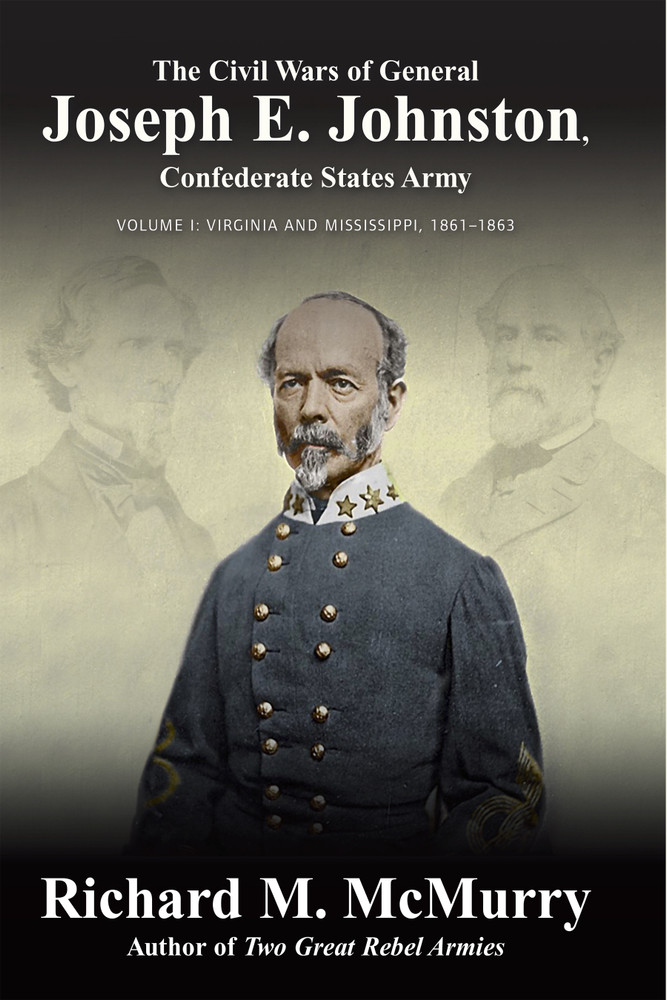
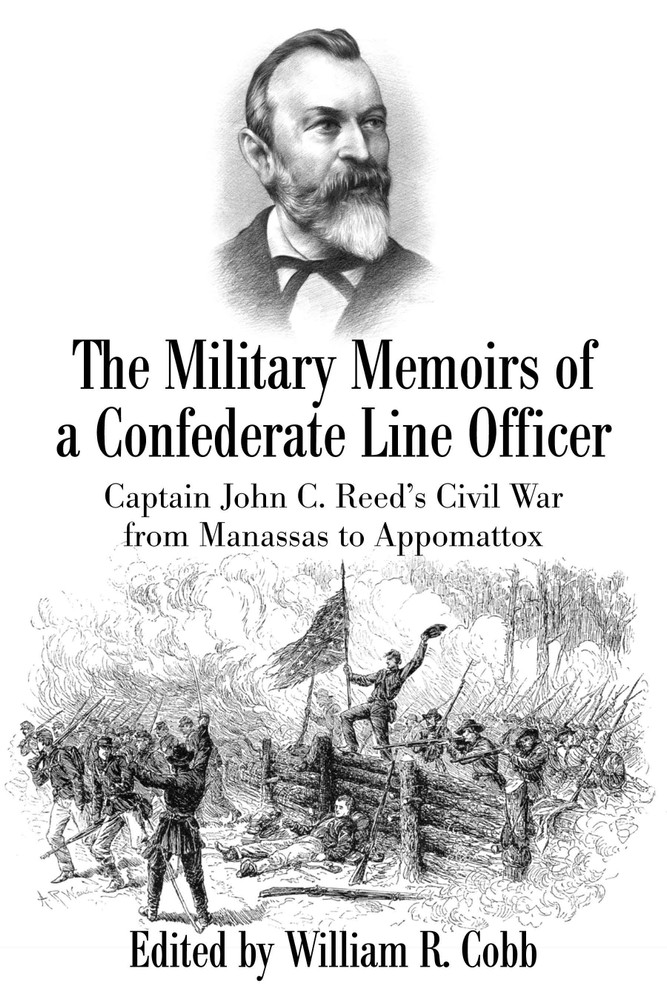

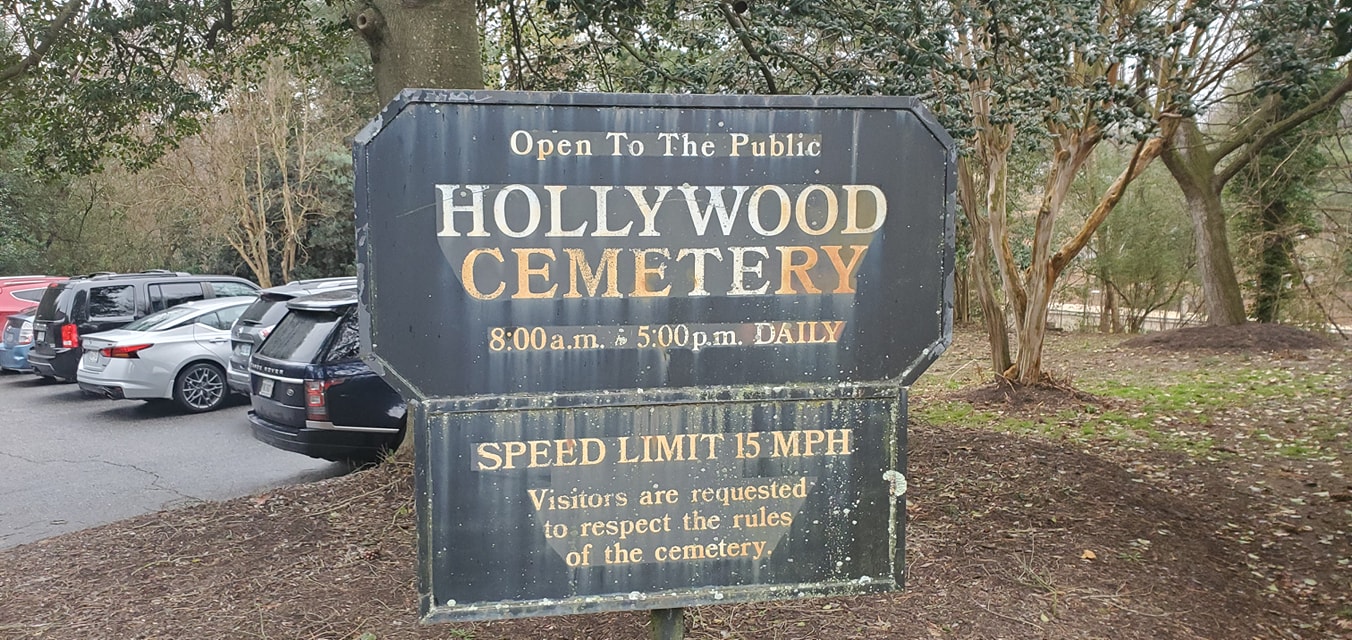



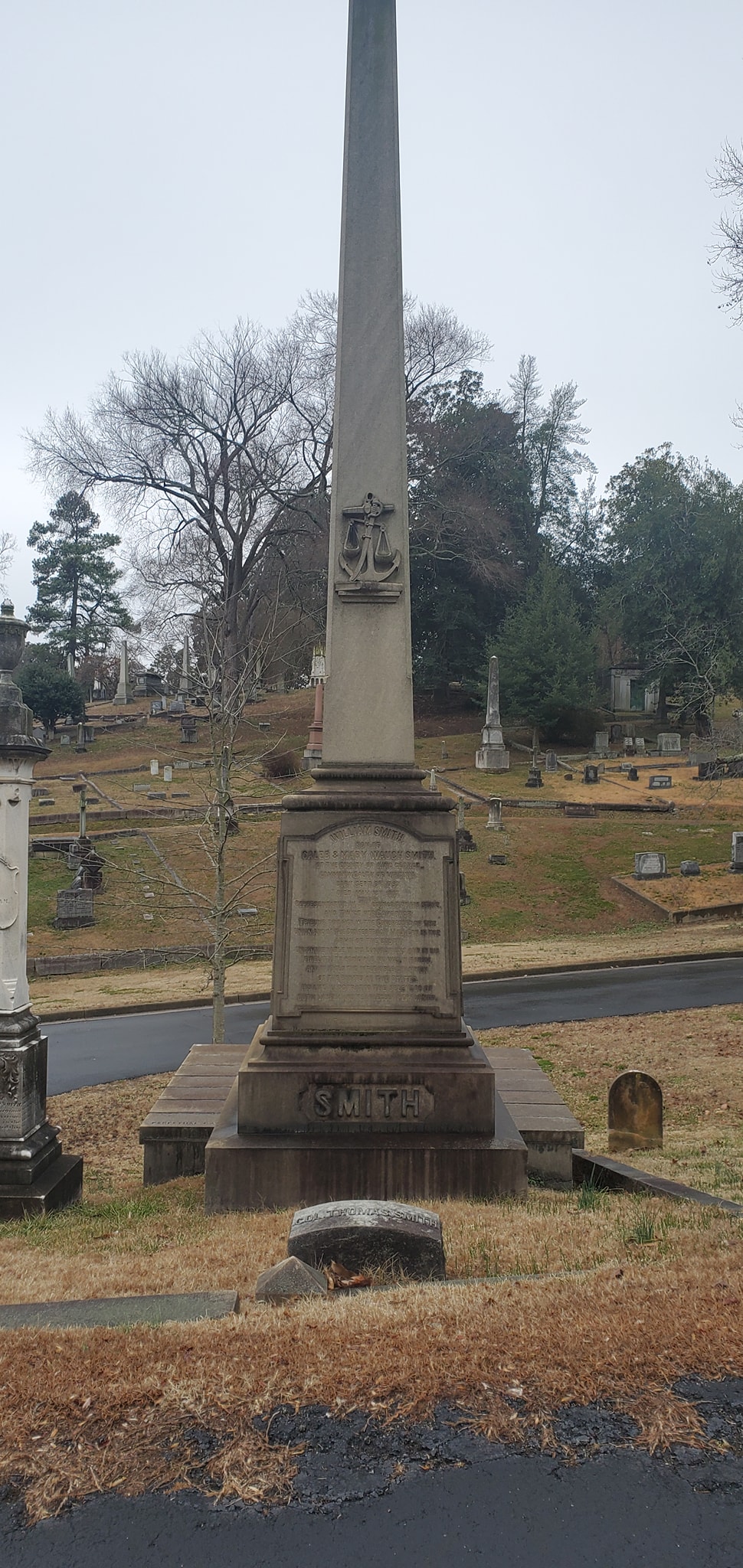
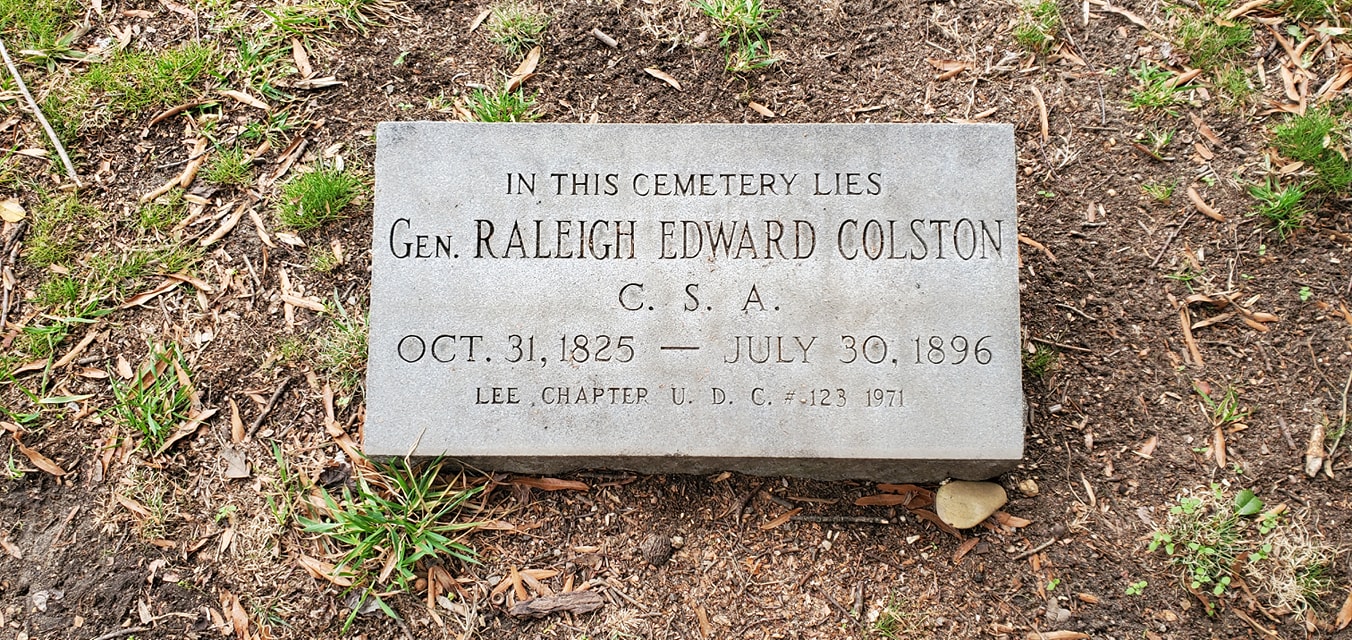
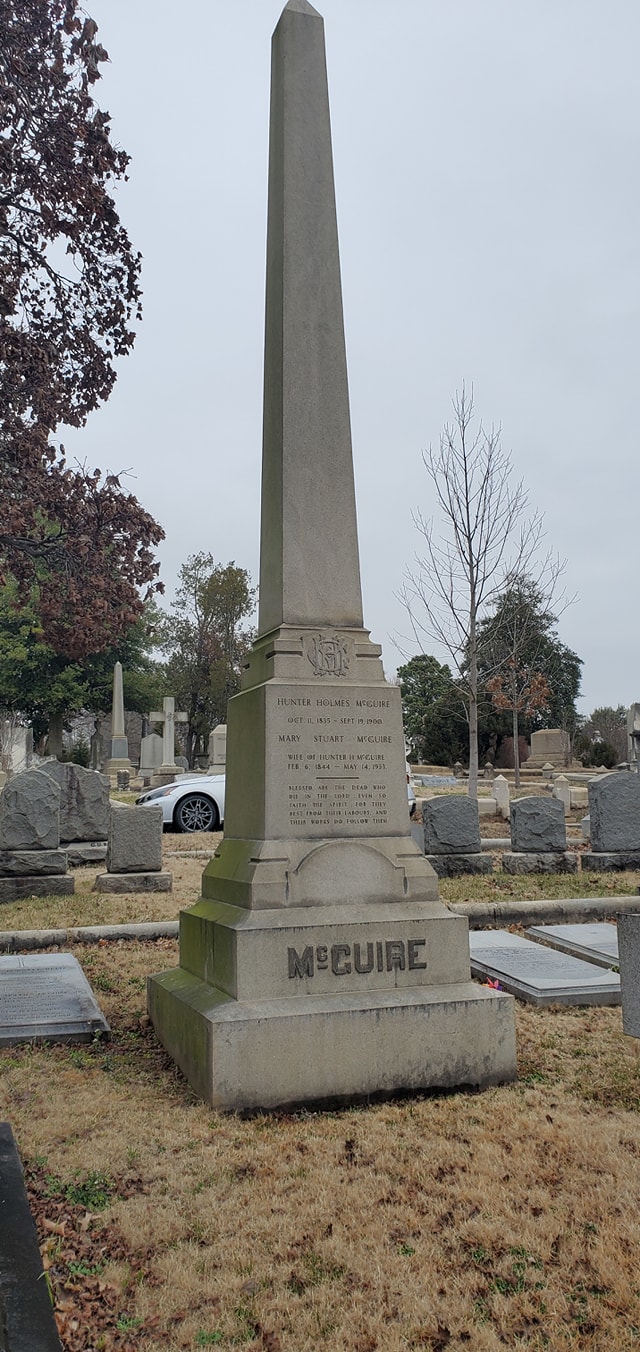


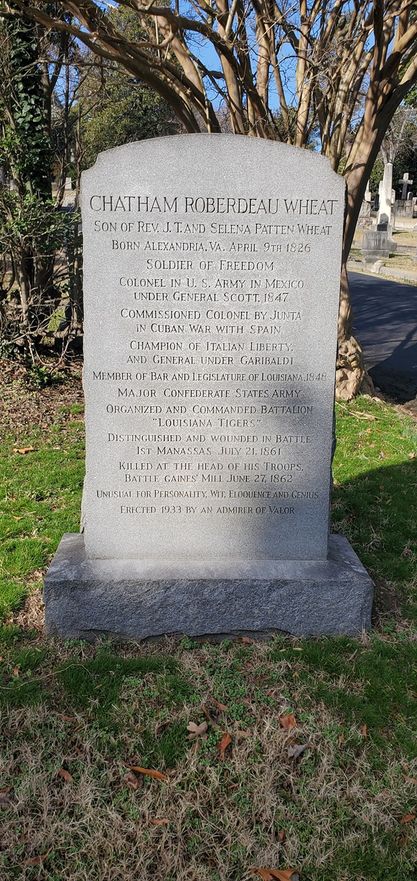
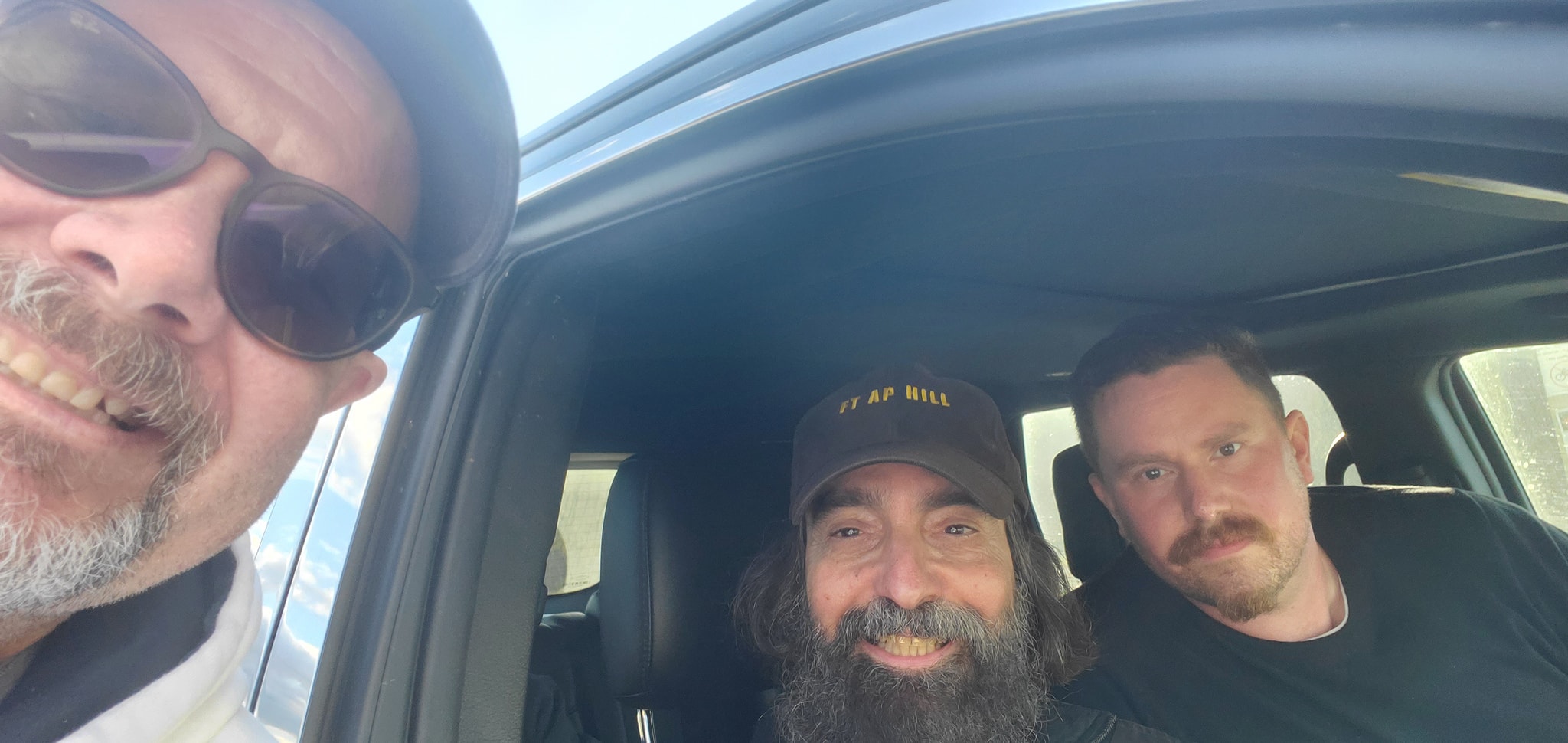

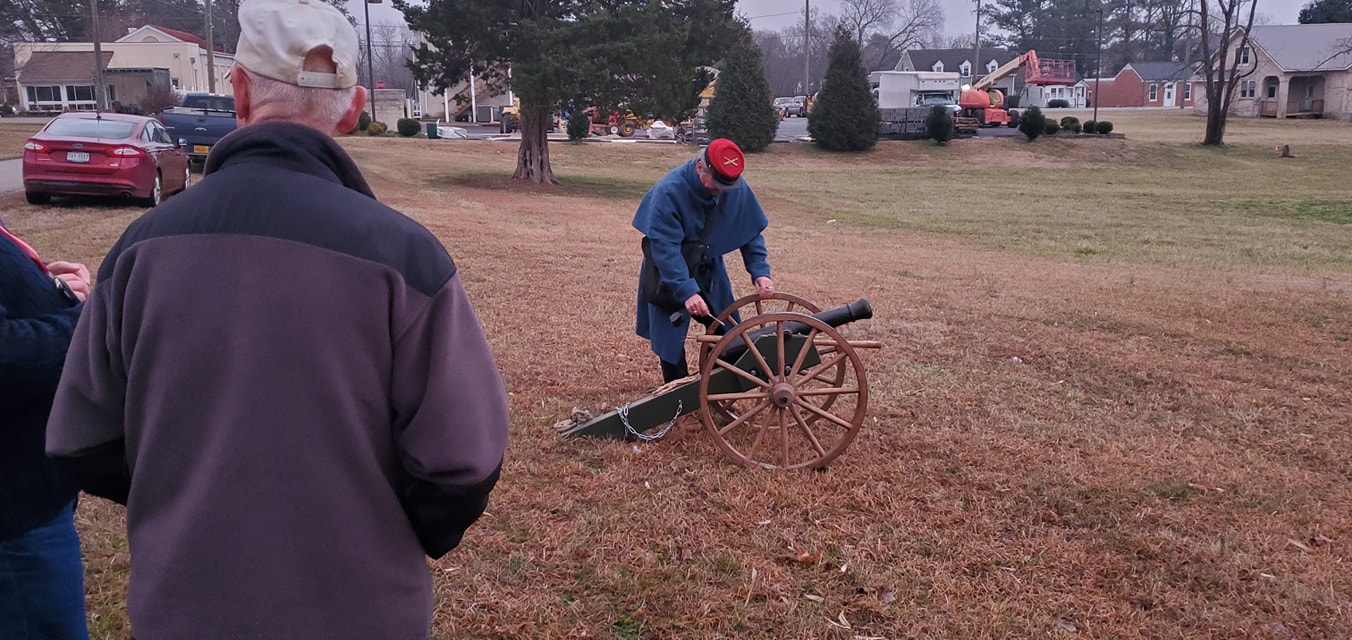
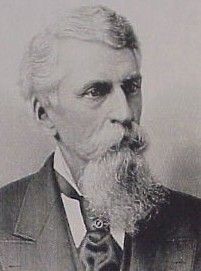
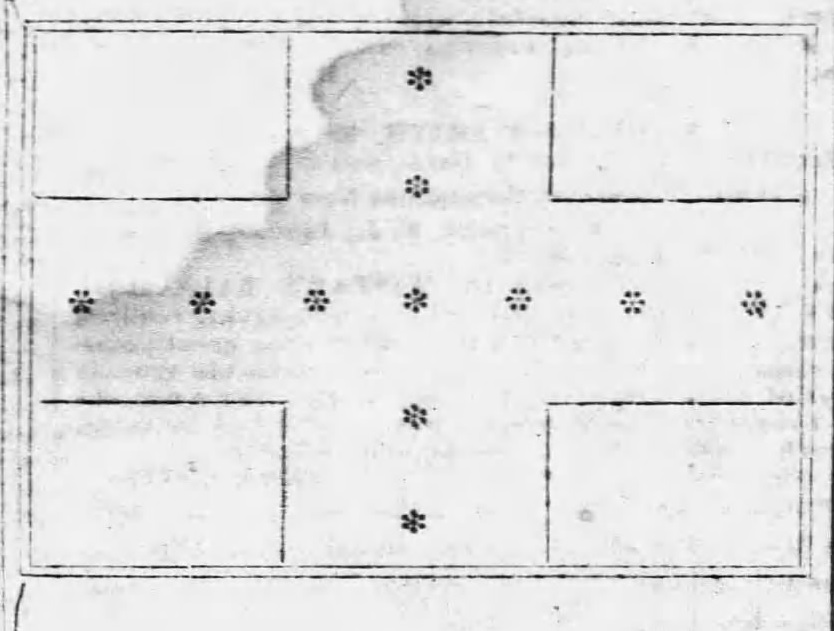


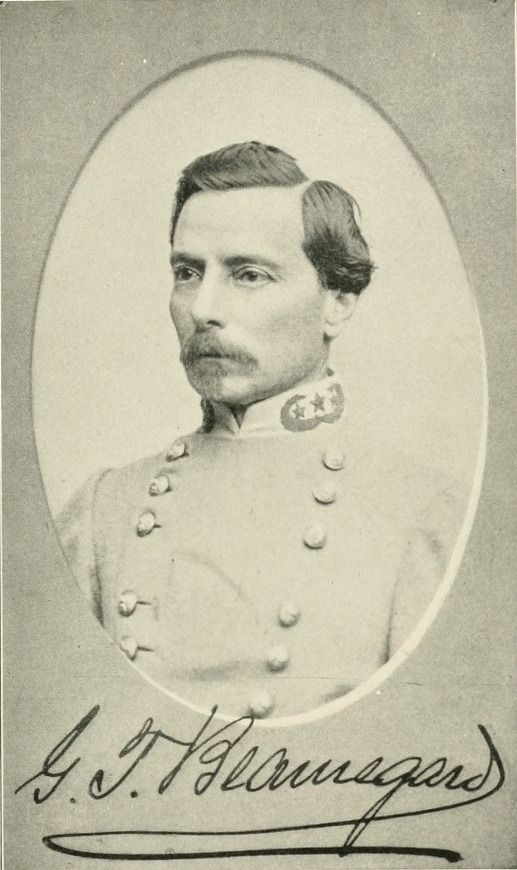

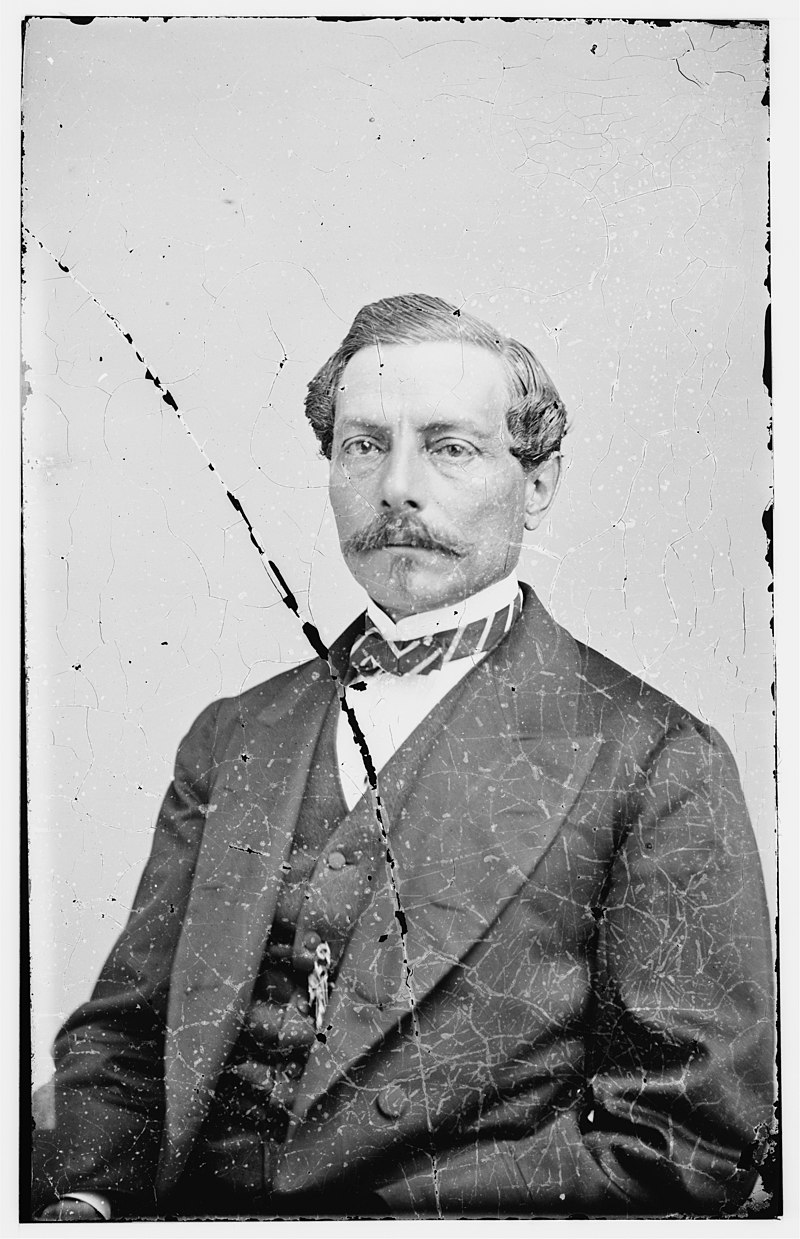

Recent Comments